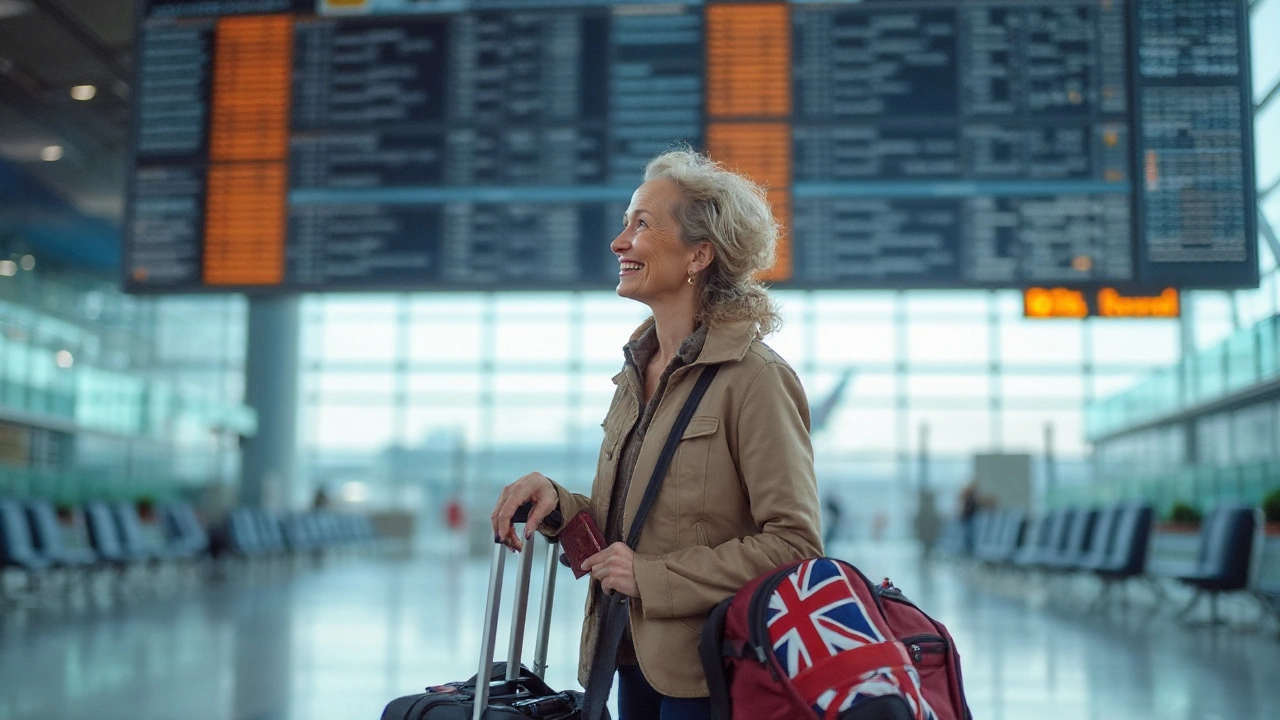 Aug, 8 2025
Aug, 8 2025
You’d be amazed at how many people secretly plan their next holiday around a new smile instead of lazy beach days. We’re talking about flying overseas specifically for cheap dental work—yep, that “dental tourism” thing is a big deal now. With a root canal in Auckland easily costing the same as a round-trip flight to Asia, it’s not even a punchline anymore. Maybe your own mate has flashed a dazzling smile after a mystery trip to Budapest, or you’ve scrolled past a Turkish dentist’s TikTok offering five-star crowns for a third of the price back home. But where exactly can you get your teeth sorted for cheap, without worrying that you’ll end up in a dodgy clinic or with some wonky veneers?
Why Dental Prices Vary So Much: What’s Behind the Numbers?
Let’s pull back the curtain: dental prices don’t just spring out of thin air. Countries set fees using their own formulas, which blend everything from average salaries to taxes, even how many dentists are fighting for your business. In New Zealand, strict safety rules and high wages mean your dentist isn’t pocketing all that cash. Instead, you’re paying for the whole setup—staff, equipment, even the coffee in the waiting room. Try comparing that with countries like Turkey or Mexico, where running a clinic costs way less.
But it’s not just about how much dentists charge. Government health funding plays a role, too. Many countries don’t include dental care in their public health system, so people pay out of pocket. In some places, dental schools crank out so many fresh dentists that prices drop to stay competitive. Or consider how clinics abroad might skip fancy extras (like ergonomic dental chairs or ocean views) to focus on the essentials, making those jaw-dropping deals even more realistic. One cool fact: Hungary is known as the “dental capital of Europe” not just for its low prices but for generations of top dental schools and clinics set up just to serve foreign patients.
Still, you’re probably wondering: are these savings a mirage? Could you end up paying more in the long run if the work needs fixing? Good question. The truth: while some dodgy spots can cut corners, plenty of clinics abroad are brimming with internationally-trained dentists and use the exact same materials you’d find back home. The difference is that you’re often not funding a fleet of new company cars or a city centre lease.
Top Countries for Affordable Dental Work in 2025
If you’re looking to save serious cash without playing Russian roulette with your teeth, some countries are consistently at the top for quality and price. Here’s a quick comparison so you can see the lay of the land.
| Country | Popular Procedures | Average Cost (Implant 2025) | Clinic Accreditation | Main Benefit |
|---|---|---|---|---|
| Turkey | Implants, Veneers, Crowns | $800 NZD | JCI, ISO, National | English-speaking dentists, affordable city breaks |
| Hungary | Implants, Full-Mouth Restorations | $1,000 NZD | EU Standards, ISO | Reputation for quality, easy for Kiwis with passports and a few flights |
| Mexico | Implants, Bridges, Fillings | $1,100 NZD | ADA, COFEPRIS | Close to USA, flexible appointment scheduling |
| Thailand | Whitening, Implants, All-on-4 | $1,200 NZD | JCI, ISO | Global reputation, luxury clinics in tourist areas |
| Poland | Crowns, Veneers, Root Canals | $950 NZD | EU Standards | Modern equipment, tourist-friendly cities |
| India | Implants, Braces, Cleaning | $800 NZD | ISO, NABH | Highly trained dentists, very cheap travel |
You might spot that places like Turkey, Hungary, and Mexico show up in almost every search for cheap dental work. They didn’t get that way overnight. Hungary’s whole city of Budapest is lined with clinics where dentists often speak three languages and advertise decades of experience. In Turkey, cities like Antalya and Istanbul seem to have more dental clinics than coffee shops, each trying to beat their neighbour’s prices. Thailand and India are known for massive hospital-style dental centres that treat thousands of overseas patients a year.
Cost-wise, the savings truly stack up. Back in Auckland, getting a single implant will set you back about $4,000–$6,000 NZD. In Turkey, you’re looking at around $800–$1,200 NZD for the same brand and technique. Mexico lands close to $1,000–$1,500 NZD. Even accounting for flights and a couple of nights in a hotel, you could still head home with cash to spare—plus a tan and maybe a few souvenirs.
It pays to do your research. Watch for clinics with proper international accreditation—look for hints like ISO, JCI, or ADA certifications—and read up on recent patient reviews, especially from Kiwis or Aussies who’ve made the trip. And don’t be shy about firing off an email or booking a video chat with your top choice; a real pro will be happy to answer questions about their qualifications and show off recent work.

What To Expect: The Real Experience of Dental Tourism
Every dental tourist has a story. Some take it as a bit of an adventure—showing up in Istanbul, greeted at the airport by a driver who whisks you to a sleek clinic where they hand you tea while you wait. Others might remember a whirlwind week in Budapest, squeezing sightseeing around their appointments. But what’s the real experience?
First up, appointments are generally much easier to get than at home. Many clinics overseas will schedule you within days, not weeks or months. That’s a life-saver if you’ve been put off by long waiting lists in New Zealand. When you show up, most clinics are modern, with equipment that wouldn’t look out of place in Auckland or Sydney. Expect a slightly different style, though—sometimes less flashy décor, with a bit more emphasis on efficiency. Most dentists speak decent English and can show you before-and-after photos of similar procedures.
For popular treatments like implants or veneers, clinics will set aside enough time not just for the dental work but also for check-ups and adjustments, so you’re not left in the lurch. You’ll probably be asked for dental X-rays or even a treatment plan from your NZ dentist, just to make sure everyone’s on the same page. They might also want to review your health history, including allergies or medications, so bring that info along.
Don’t forget follow-up. Big procedures might require a second visit months later, so ask up front if you’ll need to return (or if there’s a local partner for aftercare). Some clinics offer dental “warranties”; get these in writing, and take photos of all receipts and instructions you’re given. Transport and scheduling: most popular clinics will help you book transfers, find accommodation nearby, and even organise a little sightseeing if you’ve got free time. You don’t really have to worry about getting lost in a strange city—unless you want to!
Is it all smooth sailing? Not always. Time zones, travel delays, and jetlag can mess with your plans, especially if you need more than one visit. Some tourists say the hardest part is making decisions from afar—choosing the right country or clinic, not knowing anyone locally to vouch for them. That’s why reading lots of recent reviews and asking to speak to past patients is golden advice. Also, don’t be put off if a reputable dentist says you’re not a good candidate; that’s a green flag, not a red one!
Risks, Challenges, and How to Stay Safe Abroad
Sophia and I always weigh the risks with these things—because it’s your health, not just a bargain shopping trip. The main challenges? Sometimes, dentists overseas take shortcuts you might not spot right away. It could be rushing healing times, using older implant brands, or skipping long consultations because of language barriers. Once you’ve flown home, it’s a hassle if anything needs tweaking, and you’re on your own with the travel costs.
To avoid nasty surprises, triple-check the clinic’s credentials. Plenty of world-class dentists love showing off their certifications. Ask directly: what brands of materials are used? What are the warranties? How long have they been open? If a quote seems way too low to be true, question what’s missing—sometimes it leaves out anaesthetics, X-rays, or work needed later. Use video calls to “visit” the clinic virtually before you book anything.
Insurance? Some New Zealand insurers now offer a dental travel add-on, but it’s not standard, so check before you buy. Travel insurance can cover trip mishaps, but not failed dental work, unless you have a specific policy. Bring all your paperwork so if you need aftercare back home, you can show your NZ dentist exactly what was done. If you’re on any regular meds or have health conditions, bring notes from your GP or dentist to give a new clinic the full story.
Asking for recommendations really helps—Facebook groups for dental tourism or forums like Trustpilot can save you from a dodgy choice. And, only pay the deposit once you get details in writing. If a clinic gives you vague answers or hard-sells you, that’s a huge red flag.

Money-Saving Tips and How to Plan Your Trip
If you want to get your teeth sorted without emptying your wallet, smart planning is everything. Book flights early for better prices, check for multi-procedure packages (like a full set of veneers plus whitening), and look up local travel deals. Some clinics bundle hotel stays, pickups, and even sightseeing into their prices, so ask what’s included. Don’t shy away from haggling a little—unlike in New Zealand, some places absolutely expect it and won’t be offended.
Timing matters, too. Try going outside holiday peaks, when prices for hotels and flights drop. If you can, schedule enough days for your procedure plus rest, especially after big work like implants. It sounds silly, but take some familiar snacks and a water bottle for after your appointments—post-dentist meals aren’t always easy to chew, and you don’t want to be hunting for yoghurt in an unfamiliar city.
Bring your treatment plan from home; clinics appreciate seeing your X-rays and dentist notes. Download a translation app just in case, though most major clinics in these destinations speak solid English. Plan some recovery time into your itinerary—don’t jump on a flight home the next morning. And don’t forget currency exchange rates. Sometimes you’ll get a better deal paying in local money versus NZD or USD, but check with the clinic before you commit to anything.
One last secret: join online groups for people getting dental work abroad. People love sharing advice, before/after photos, and even trusted contacts. Real-life stories are worth gold—ask around first before clicking “Book Now.” You can score insider tips about which clinics were fantastic or which hotels had the fluffiest pillows for post-dental downtime. If you play it right, you could wind up with new teeth, a holiday album, and leftover funds for something you actually want to spend money on back in Auckland.
